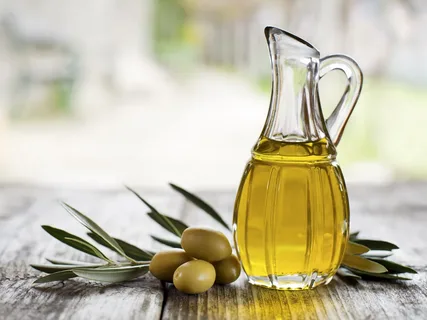Introduction
Kalonji, also known as black cumin or nigella seeds, has been used for centuries in traditional medicine and culinary practices. These tiny black seeds are packed with nutrients and bioactive compounds that offer a range of health benefits. In this comprehensive guide, we’ll explore nine impressive health benefits of kalonji and how you can incorporate it into your diet.
Rich in Antioxidants
Kalonji is rich in antioxidants, including thymoquinone, which help protect the body against oxidative stress and free radical damage. Antioxidants play a crucial role in reducing inflammation and preventing chronic diseases such as cancer and heart disease.
Anti-inflammatory Properties
The active compounds found in kalonji, such as thymoquinone and alpha-hederin, exhibit potent anti-inflammatory properties. Consuming kalonji regularly may help reduce inflammation in the body, alleviating symptoms of conditions like arthritis and asthma.
Supports Heart Health
Kalonji contains compounds like oleic acid, linoleic acid, and thymoquinone, which have been shown to support heart health. These compounds help lower cholesterol levels, reduce blood pressure, and improve overall cardiovascular function, reducing the risk of heart disease.
Aids Digestive Health
Kalonji is known for its digestive benefits, thanks to its carminative and anti-spasmodic properties. Consuming kalonji may help alleviate symptoms of indigestion, bloating, gas, and stomach cramps, promoting better digestive health.
Boosts Immune Function
The immune-boosting properties of kalonji can help strengthen the body’s natural defenses against infections and diseases. Regular consumption of kalonji may help improve immune function and reduce the risk of common illnesses like colds and flu.
Supports Weight Loss
Kalonji may aid in weight loss and management due to its ability to boost metabolism and reduce appetite. Including kalonji in your diet can help promote feelings of fullness and satiety, making it easier to control calorie intake and maintain a healthy weight.
Promotes Skin and Hair Health
The antioxidant and anti-inflammatory properties of kalonji make it beneficial for skin and hair health. Applying kalonji oil topically or consuming kalonji seeds may help reduce acne, eczema, and dandruff, while promoting a healthy, glowing complexion and shiny hair.
Improves Cognitive Function
Some studies suggest that kalonji may have neuroprotective effects and could help improve cognitive function and memory. The antioxidants found in kalonji may help protect brain cells from damage and reduce the risk of neurodegenerative diseases like Alzheimer’s.
Regulates Blood Sugar Levels
Kalonji has been shown to have hypoglycemic effects, meaning it can help lower blood sugar levels. Including kalonji in your diet may help regulate blood sugar levels, making it beneficial for individuals with diabetes or insulin resistance.
Conclusion
Kalonji, or nigella seeds, offers a wide range of health benefits, from supporting heart health and boosting immune function to promoting digestive health and improving skin and hair health. Incorporating kalonji into your diet and skincare routine can help enhance overall health and well-being.
FAQs
What is kalonji, and where does it come from?
Kalonji, also known as black cumin or nigella seeds, comes from the Nigella sativa plant, native to South Asia, Africa, and the Middle East. It has been used for centuries in traditional medicine and culinary practices.
How do you use kalonji in cooking?
Kalonji seeds can be used whole or ground in a variety of dishes, including curries, soups, stews, bread, and salads. They add a nutty flavor and aroma to dishes and are often used as a spice or seasoning.
Can kalonji be consumed raw?
Yes, kalonji seeds can be consumed raw, although they are more commonly used in cooking or as a topping for bread and pastries. Raw kalonji seeds have a slightly bitter taste and are often used in herbal remedies and traditional medicine.
Are there any side effects of consuming kalonji?
While kalonji is generally safe for most people when consumed in moderate amounts, some individuals may experience allergic reactions or digestive issues. It’s essential to consult with a healthcare professional before using kalonji for medicinal purposes, especially if you have underlying health conditions or are pregnant or breastfeeding.
Is kalonji oil beneficial for hair growth?
Yes, kalonji oil is believed to promote hair growth and prevent hair loss due to its antioxidant and anti-inflammatory properties. Massaging kalonji oil into the scalp can help stimulate hair follicles, improve blood circulation, and strengthen the hair shaft.
Can kalonji help with respiratory conditions like asthma?
Some studies suggest that kalonji may help alleviate symptoms of respiratory conditions like asthma due to its anti-inflammatory and bronchodilator effects. However, more research is needed to confirm its effectiveness and safety for treating respiratory conditions.
Is kalonji effective for reducing cholesterol levels?
Preliminary research suggests that kalonji may help lower cholesterol levels and improve lipid profiles, thanks to its antioxidant and anti-inflammatory properties. However, more studies are needed to determine the optimal dosage and long-term effects of kalonji on cholesterol levels.
- Maramota #10 Marijuana Strain - July 24, 2024
- El Perro Marijuana Strain - July 24, 2024
- Four Cups Marijuana Strain - July 24, 2024






